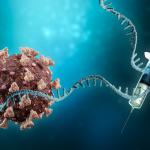PleximmuneTM test to predict liver transplant rejection presented at the Liver meeting...
The Pleximmune test is the first blood test of its kind to predict whether acute cellular rejection will occur in children with liver or intestine transplantation. This information can help transplant physicians guide post-transplant care. During a six-year period, over two hundred and eighty blood samples from more than 200 children were tested in two groups. Samples from the first portion of the study period were termed the training set, and those obtained subsequently were termed the validation set. Rejection or no rejection was correctly predicted in over 80% of samples, which had been obtained after transplantation in both groups of children. These results represent a first such large study performed for a cellular blood test which can predict acute cellular rejection in children with liver or intestine transplantation.
The Liver meeting is the largest annual meeting of the American Association for the Study of Liver Diseases. The meeting is attended by nearly 9000 research scientists, physicians and other healthcare providers who treat liver diseases.
Plexision develops and markets personalized diagnostics and offers drug and vaccine development services for transplantation and other immunological disorders. Plexision’s first patented product, the PleximmuneTM assay, is a personalized test, which predicts rejection by measuring a type of white blood cell called T-cytotoxic memory cells. Test results consist of a personalized numeric index called the immunoreactivity index.

